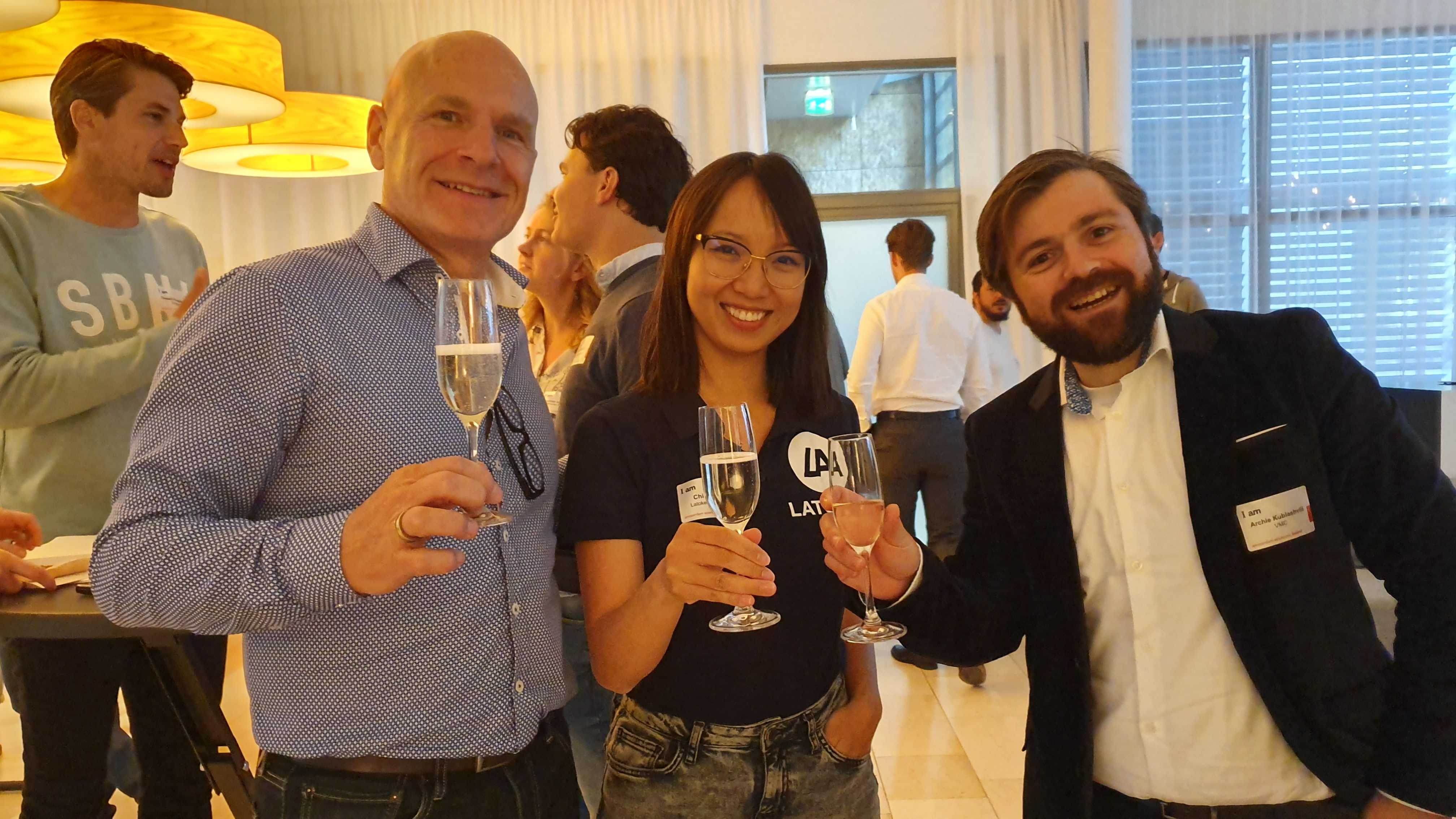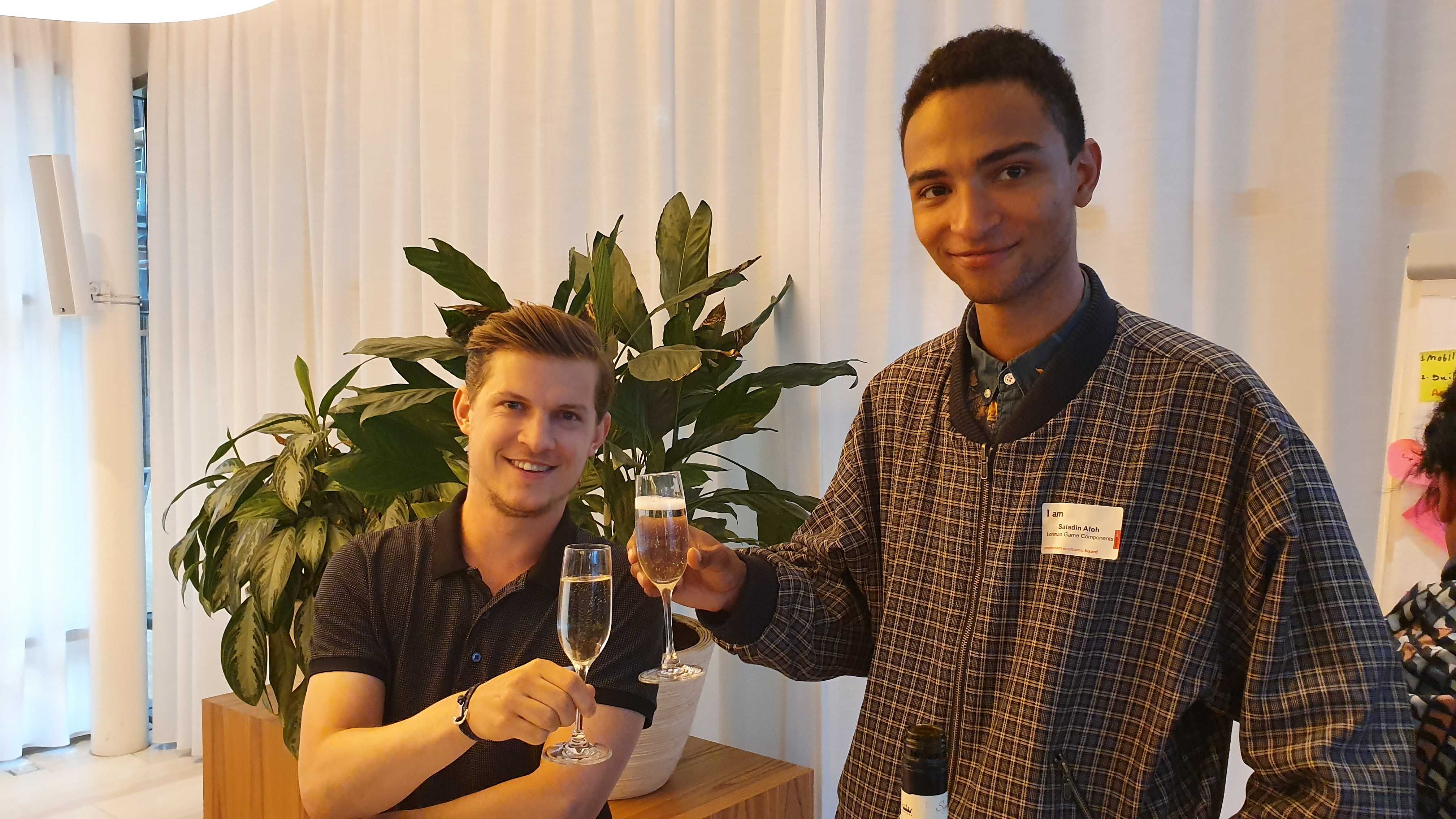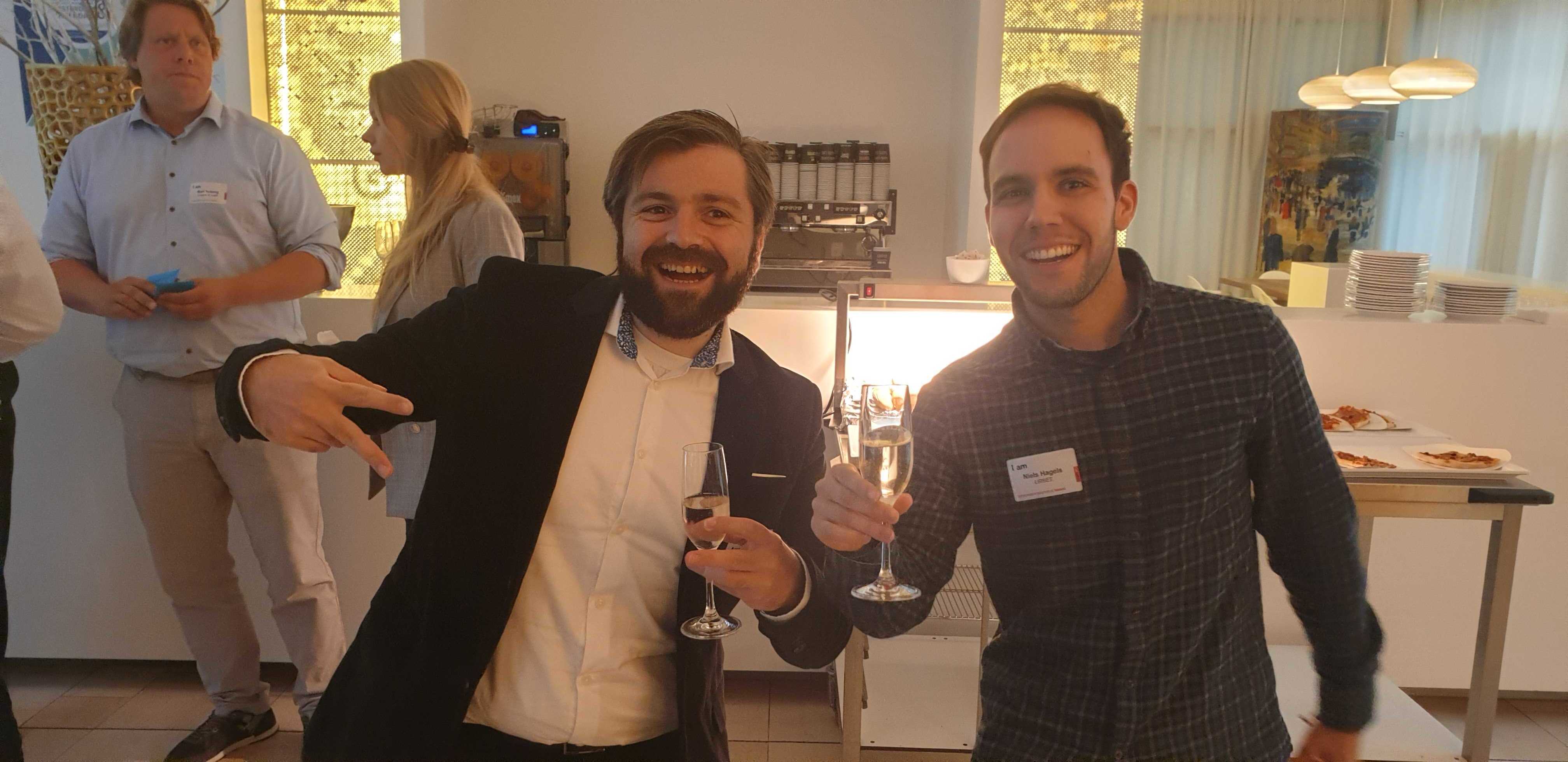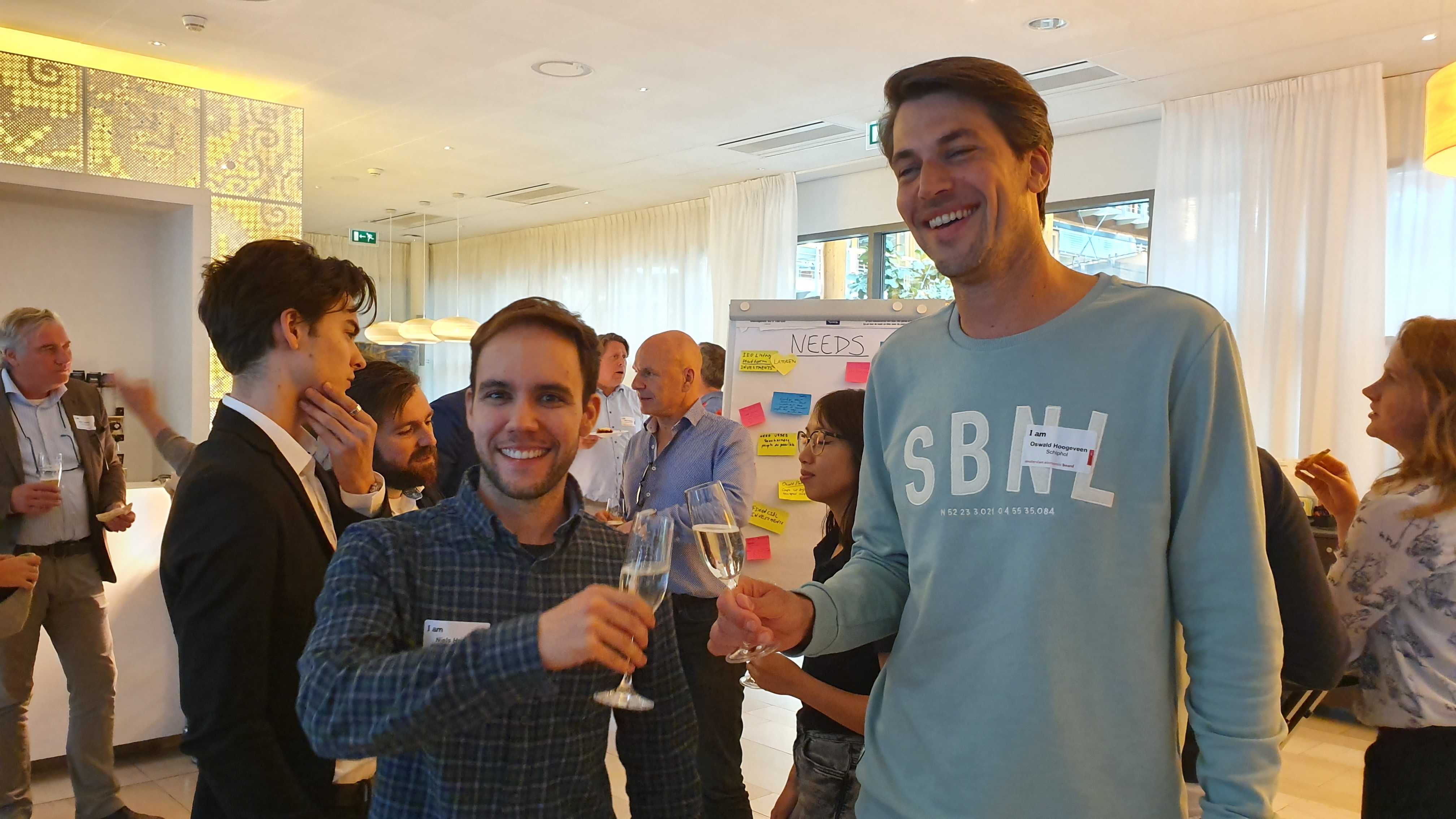Mobility X Blockchain: Blockchain meetup #3
Which new blockchain solutions are being pioneered within the mobility field, and how can we help each other? At Blockchain meetup #3, we saw some great examples of blockchain applications in mobility. Attendees had the opportunity to share what they need and what they have to offer to the Mobility X Blockchain community.
Blockchain promises to deliver trust, transparency, privacy and data sovereignty in a digital world. But blockchain also triggers questions about power structures and the future of business and governance models. The Amsterdam Economic Board organizes meetups to grow blockchain knowledge, capabilities and accelerate entrepreneurship in the Amsterdam area.
For the third blockchain meetup, we are at law firm Loyens & Loeff in Amsterdam. The firm has been following blockchain developments since 2013, says Martijn Schoonewille, partner at Loyens & Loeff. He is one of the driving forces behind the Loyens & Loeff Tech Academy and has a particular interest in artificial intelligence, smart contracts and DLT uses in financial markets. Today there are about 25 Loyens & Loeff employees who regularly work with blockchain.
“Our main objective is to help you build successful and lasting solutions for tomorrow’s world,” Martijn says. “We can help with legal challenges, but we can also assist in consortia, which might be interesting for blockchain solutions in mobility. Of course, we are also curious to learn today, so let’s make it happen!”
One-stop shop for mobility operators
Today’s second speaker is Archie Kublashvili, director of marketing at VMC. “We are developing a decentralized backbone for the new mobility economy, a blockchain-based open mobility platform that must become a one-stop shop for mobility operators,” he explains. “Our mission is to build a solution that supports everything a smart city has to offer.” Many mobility companies, he adds, are still spending a lot of money on developing and building their own platforms.
The more mobility providers are connected, the more interesting–and abundant–the data. “For example, we can already see that the most travelled Uber route between 7 and 8am is between the center of Amsterdam and the FlixBus stop at Sloterdijk,” says Archie. “So people pay a lot of money to go on their cheap bus journey. This is interesting knowledge for our clients.”
Archie still remembers the days when he had to put cash into a ticket machine to purchase a train ticket to Vlissingen. “It’s already a lot better than it was, but transport can still be way more efficient.”
Eliminating paper in logistics
Hjalmar van der Schaaf is CEO of CargoLedger. “One of the main challenges in logistics is paper,” he says. “It gets lost and adds complexity because it constantly need signatures. But paper also provides trust. And that trust can be organized differently with blockchain.”
Blockchain is at the core of CargoLedger’s application. “We created a trusted fast lane,” Hjalmar says. “The sender of a package puts the information in the blockchain and the receiver can follow the related tag. Through the app, you get proof of delivery and payment on delivery.”
Blockchain can make information processes upwards of 80 percent more efficient. “Compliance gets easier, and stakeholder management becomes better,” says Hjalmar. “You need less verification and less validation. In the end, it lowers the cost of doing business.”
Dreaming of validated datasets
Peter Engel is a certified public accountant and the co-founder of actuals.io. “I like it when things fit, when all numbers make sense, so I’m dreaming of validated datasets,” he begins. He then dives into the digitization trend, which will transform non-digital businesses into digitally-driven companies. “That means the control and audit of revenue streams will also become more IT and data driven. We’re moving away from system audits to data-driven audits.”
And that is where actuals.io comes in. “We follow the data,” says Peter. “We help prove to our customers that their databases are trustworthy and accurate.” Among his company’s several clients in mobility are ParkMobile and Takeaway.
Peter says that while actuals.io is not yet on the blockchain, he does fantasize about it. “I’m dreaming about a situation where one indisputable transaction is the settlement for all stakeholders. And that’s not about technology, but about innovating a process and about being open to sharing data with each other.”
Offers and needs
It’s time for pizza, drinks and the interactive part of today’s meeting. What can attendees offer the blockchain mobility ecosystem in Amsterdam, and what do they need? They write their offers and needs on Post-its, which they then stick to flipovers. If an attendee spots a matching opportunity, he or she can place a heart-shaped post-it on the offer or need.
Start-up Urbee offers “a mobility solution through e-bikes for individuals and companies.” Other offers include: “A mobility platform for your MaaS or shared mobility,” “Hong Kong/China marketing” and “closing the gap between innovation and legislation.” At the ‘needs flipover,’ attendees mention “knowledge about blockchain tech,” “reaching as many people as possible,” “small investment for research projects” and “partners to open up real MaaS cooperations.”
As attendees discuss blockchain opportunities in mobility and their offers and needs, several matches are made—all toasted with glasses of prosecco.
Do you want to participate in this discussion on Amsterdam Smart City, a platform for the smart city community that already has some 7,000 members? Then please join us on amsterdamsmartcity.com. As this afternoon makes clear, blockchain developments definitely deserve a spot on the platform, too!
11 July 2019
Read more about
Contact us
Want to keep up to date?
Get the best regional news and events (in Dutch) via the Board Update newsletter
Share this news
Want to keep informed?
Follow us daily on LinkedIn and sign up for the Board Update newsletter.
Read more
- What AI applications are we already deploying for healthcare and wellbeing? What ...
- Adyen is one of the great success stories of Amsterdam’s tech ...
- Together with enthusiastic partners in three coalitions, the Amsterdam Economic Board is ...





